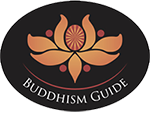I think it’s true to say, we spend most of our waking hours fixating on the past or the future. We relive painful experiences from our past, or construct elaborate scenarios of what we think may happen in the future - but very rarely does.This brings us untold mental suffering. We never stop to check our thoughts, feelings or emotions. We just blindly follow them. This makes us act in an unskillful way. I believe a big part of what we think is, quite frankly, total rubbish. We do not need to blindly follow every thought, but sadly we do. What we are doing is torturing ourselves, but happily, there is another way.
When we stop trudging back to the past or flitting off to the future, we become present in the moment. We start to become aware of our thoughts, feelings, emotions and sensations. It is a truly liberating experience. This is what people popularly call mindfulness.
Mindfulness is when we are paying attention to what is happening in the present moment. We become aware of what thoughts are arising, what we are feeling, what emotions are present and what sensations we feel in the body. We get a full moment-by-moment experience. This helps calm and steady the mind, so we are able to see which thoughts we should follow, and which we should drop, like a hot potato.
When we are being mindful we are looking at our mind in a non judgement way. We are just observing with equanimity, and not trying to control or suppress our thoughts. All we have to do is remain present with our thoughts, feelings and emotions, whether they happen to be pleasant or unpleasant. This gives us the chance to reflect before we act. It allows us to look at what is arising in an open, friendly and more compassionate way. It gives us a choice, act or don’t act. If what is arising is helpful, we should act upon it. However, if it is unskillful and harmful, we should not act and just let the thought go.
When our mind is agitated it is like a bucket of muddy water. However, when we are being present in the moment, the mud settles and we can see clearly. We are able to see just what is present, be it anger, pride, fear, jealousy, excitement and so on. This insight gives us choices. We no longer need to follow whatever comes into our minds. We can decide on the most skillful way to act. This will help reduce our suffering and the suffering of those around us.
You may think this sounds wonderful, but impossible to do. Well it’s not. Do this little experiment - sit quietly with your eyes slighly closed. Now become aware of the sensation as your breath enters and leaves your nostril. Do this five times. Congratulations, you have just been mindful. You weren’t thinking about the past or the future, but just present in the moment. Of course, mindfulness takes practice, but like everything else, the more we do it the easier it becomes.
Start of slowly and incorporate more acts from your daily routine as you become more experienced. Try cleaning your teeth in a mindful way. Become fully aware of the task you are doing and don’t allow your thoughts to go off to the past or the future. Experience what you feel when you hold your toothbrush and squeeze the toothpaste. Focus on the sensation of the toothbrush going up and down in your mouth. Taste the toothpaste on your teeth. Feel your arm moving up and down. Experience the sensations in your mouth once you have finished cleaning your teeth. These are all moments of mindfulness. You are going to feel like this is the first time you have ever cleaned your teeth, and in a way it is. It is the first time you have cleaned them mindfully.
You can find more from this author in his latest book Life’s Meandering Path.
You can read more blogs, listen to podcasts, watch videos and practice guided meditations on the Buddhism Guide app. Available from the Apple Store and Google Play.
